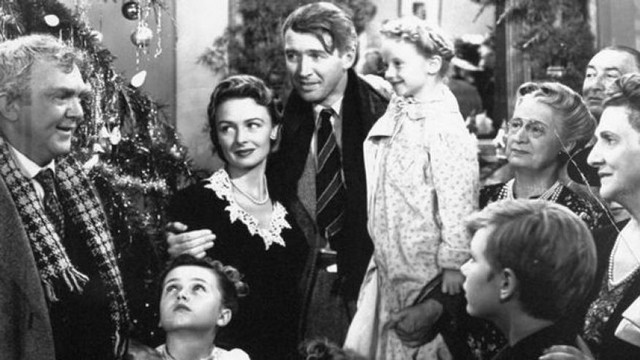Why “It’s a Wonderful Life” endures seventy years later
Paul J. Batura,
It’s been seventy-years since the angel Clarence Odbody gave George Bailey a timeless gift in “It’s a Wonderful Life” - the chance to see what the world would be like had he never been born.
The plot and the premise of the perennial holiday favorite – that every soul touches and impacts every life - resonates and endures seven decades later because deep down inside, many of us, if not all of us, sometimes wonder the same thing.
Do our lives truly matter? Are we making a difference? In a world of over seven billion people, would our single life really be missed?
Christmas is an ideal time to ponder our purpose and significance because for Christians, it’s the holiday we celebrate the birthday of the single greatest man who ever lived. Indeed, in the life of Jesus of Nazareth, we’re reminded that one life can not only change and save others – but that one, seemingly ordinary life, can also change the world.
This truth was made very real to me in the summer of 2005. Our lives – and world - were turned upside down that July in the most wonderful of ways when Julianna chose my wife and me to adopt her son. She knew she could be a mother to Riley but wanted to give him what she knew she couldn’t be - a father. We’ve subsequently adopted two more boys – Will and Alex – but only because their birthmothers first chose life and then chose us.
Being an adoptive father, I’ve been drawn to stories of other adoptees, hoping to impress upon our boys that it’s the courageous decision of their respective birthmothers that has put them in a position to not only enjoy a good life – but to make a difference in the lives of others.
In doing so, I collected sixteen stories featuring people everyone would recognize. All of these individuals succeeded, not in spite of being adopted, but because of it. As I wrote, I pondered how different the world would be – not only if they hadn’t been born – but especially if they had never been adopted.

To be sure, your world – and civilization itself - would look very different.
How so?
Just imagine life without Apple computers and iPhones. It was Paul Jobs, a mechanic in the middle of a burgeoning Silicon Valley, who taught his adoptive son, Steve, about marrying the the importance of excellence and design. It was the Jobs who introduced a young Steve to HP executives.
“If he’d grown up differently,” his sister once said, “he might have become a mathematician.”
Then there was a woman named Anne “Nancy” Robbins who was adopted by a neurosurgeon in Chicago named Loyal Davis.
When Nancy Davis arrived in Hollywood with her new name, she found work difficult to find. There was another Nancy Davis on the communist sympathizer list. The fledgling actress was encouraged to meet with the president of the Screen Actors Guild to help sort things out.
Had Nancy never been adopted – had she never changed her name - she never would have had any reason to meet Ronald Reagan. And without Nancy, most historians believe Mr. Reagan would never have been elected governor of California or the fortieth president of the United States.
“Each man’s life touches so many other lives,” said the second-class angel, Clarence, to a distraught and now convinced George Bailey. “When he isn’t around he leaves an awful big hole, doesn’t he?”
We love the happy ending and we get it in the final minutes of the movie. George wants to live again – and does. And after two-hundred years, Clarence finally earns his wings.
Yet, as Christians, the very best news is that we already have ours.
Each life matters - to all of us.
And that makes this life – and the next – wonderful, indeed.





